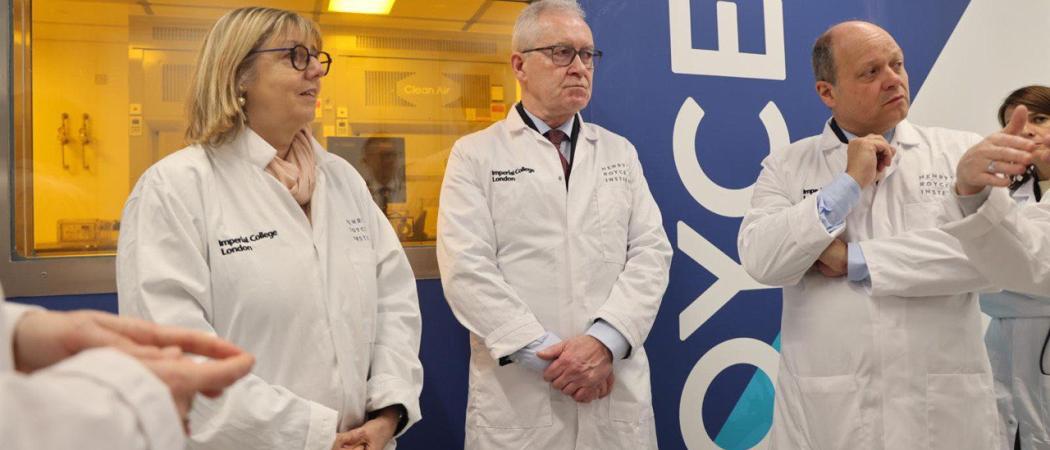French science minister has visited the UK to strengthen scientific relations, promising more money for joint projects, and collaboration on AI safety

Sylvie Retailleau (left) during a visit at Imperial College London last week.
France and the UK have set up a joint committee to cooperate on emerging technologies, in the latest sign that London’s scientific relations with the EU have thawed.
Sylvie Retailleau, France’s higher education and research minister, was in London last week to meet with her UK counterpart, Michelle Donelan, face-to-face for the first time.
They agreed on a series of relationship-building measures, including a joint committee on new technologies, AI safety collaboration, and more funding – albeit modest – to spur joint projects.
The committee, which will meet every two years, will “work on shared and promising opportunities for R&D teamwork across the Channel”, according to a UK statement, such as in quantum technologies and artificial intelligence.
“This joint committee is a perfect illustration of the international component of research, from identifying key priorities such as hydrogen, AI, space and research security, to enabling collaborative work and exchange of ideas and good practices through funding,” said Retailleau in the statement.
This matters because a question mark still hangs over how much the EU will cooperate with the UK on sensitive technologies now it has left the bloc.
In 2021, the European Commission proposed excluding non-member states, including the UK, Israel and Switzerland, from certain calls in quantum and space research in the Horizon Europe research and innovation programme.
This kicked off a tussle in Brussels between member states and the Commission over whether the UK should be included. France has normally leaned towards the protectionist side of this debate.
The UK is now associated to Horizon Europe, bringing an end to nearly three years of strained scientific relations across the Channel that ended with a deal last September. But the EU could still chose to exclude the UK and other non-member states from future sensitive calls.
AI collaboration
Aside from cooperation on sensitive technology, the UK and France also agreed to link up on AI safety research.
The UK’s newly established AI Safety Institute, and France’s National Institute for Research in Digital Science and Technology, will “jointly support the safe and responsible development of AI technology”, according to the UK statement. No details were made public.
Last November, the UK hosted a global AI Safety Summit, focused on the risks that the technology could one day spin out of human control entirely, and on more current concerns like disinformation. France is on board with this agenda, and will host another safety summit late this year, after South Korea hosts the second in mid-2024.
During Retailleau’s visit, the UK and France also announced an extra £800,000 in new funding for joint research. This could “unlock more UK-France joint bids for grants to support cutting-edge R&D,” for example in Horizon Europe.
This is the latest initiative to repair UK engagement in Horizon Europe. UK participation halved between 2021 and 2023 when the country was not associated, as UK researchers were locked out of some parts of the programme, and faced far more bureaucracy to join others.
In February, research commissioner Iliana Ivanova also visited the UK to drum up interest among British scientists. The UK has launched its own grants, worth up to £10,000, to re-stimulate interest.





 A unique international forum for public research organisations and companies to connect their external engagement with strategic interests around their R&D system.
A unique international forum for public research organisations and companies to connect their external engagement with strategic interests around their R&D system.